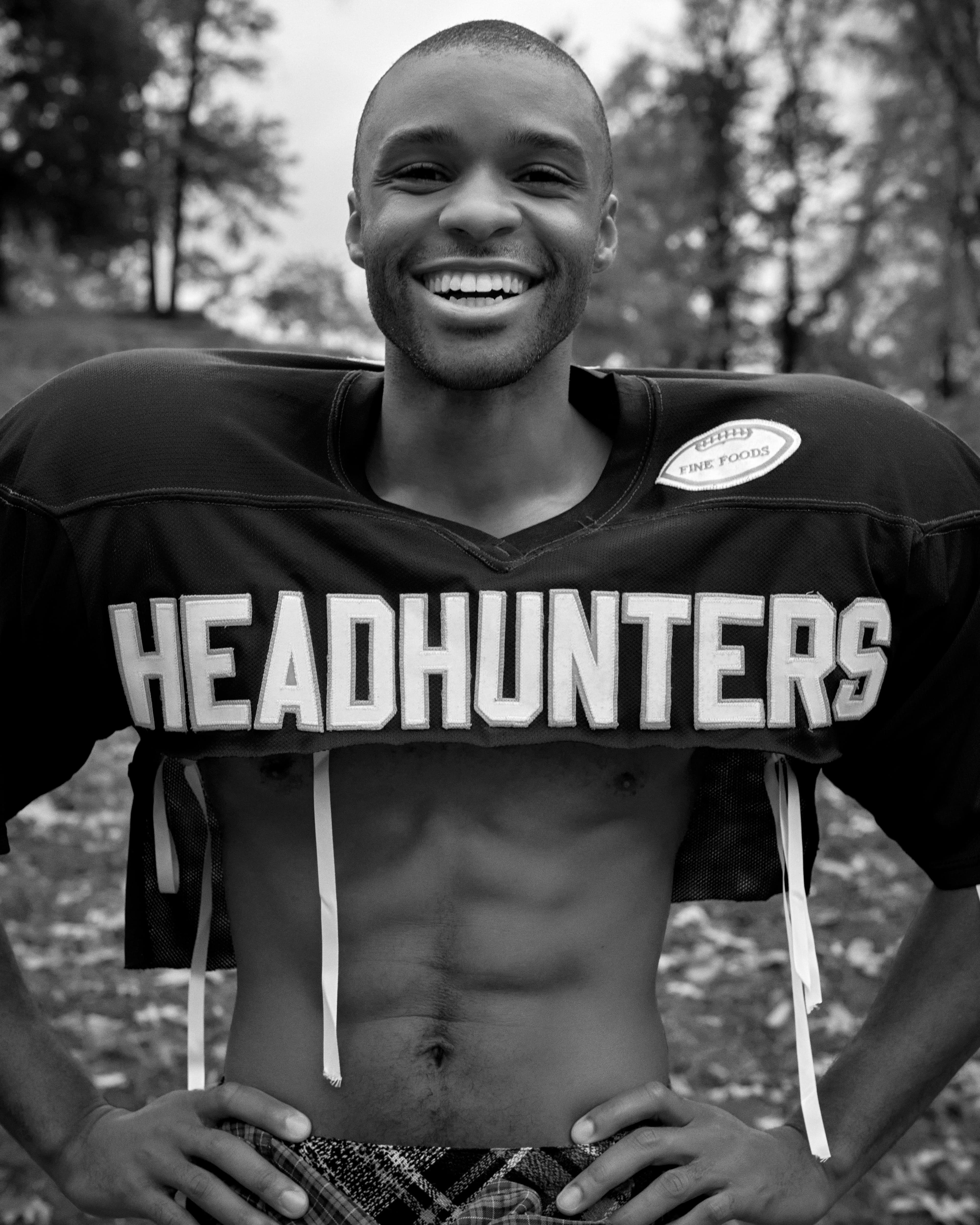
Dyllón Burnside Is Looking for Himself
When the Omicron wave swept through New York this winter—wreaking havoc across company holiday parties, family gatherings, and the restaurant industry—the performing arts, barely three months into a long-awaited reopening, were hit particularly hard. A single performer’s positive test could force a cancellation and the refund of tens of thousands of dollars worth of tickets, a burden even many blockbuster Broadway shows could not afford. Some, including Aaron Sorkin’s popular Tony-winning adaptation of To Kill a Mockingbird, announced months-long hiatuses with plans of reopening amid lower infection rates. Nine other shows made the difficult decision of closing permanently, yet more victims in a cultural landscape already devastated by an unprecedented shutdown and a lack of government support.
One of the most unfortunate closures was that of Thoughts of a Colored Man, by Keenan Scott II in his Broadway début, the first play in Broadway history with a cast and lead creative team comprised entirely of Black men. After 2020’s reckoning over racial injustice throughout society, including in the theater industry, the current season is notable for its wealth of Black voices, and Thoughts offered seven, each meant to reflect a facet of Scott’s experience as a Black man, in a blend of slam poetry, song, and prose. For Dyllón Burnside, who played Love, the play was an example of exactly the kind of creative endeavor that inspires him. “I want to expand the world’s idea and perception of what it means to be male, what it means to be Black, what it means to be queer, and what it means to exist at the intersection of all three,“ he explains. “That’s the mission statement, so to speak, for me. The work that I want to do is about pushing those boundaries, expanding the conversation around identity, and engaging people in conversation and dialogue in a way that’s healthy and productive.“
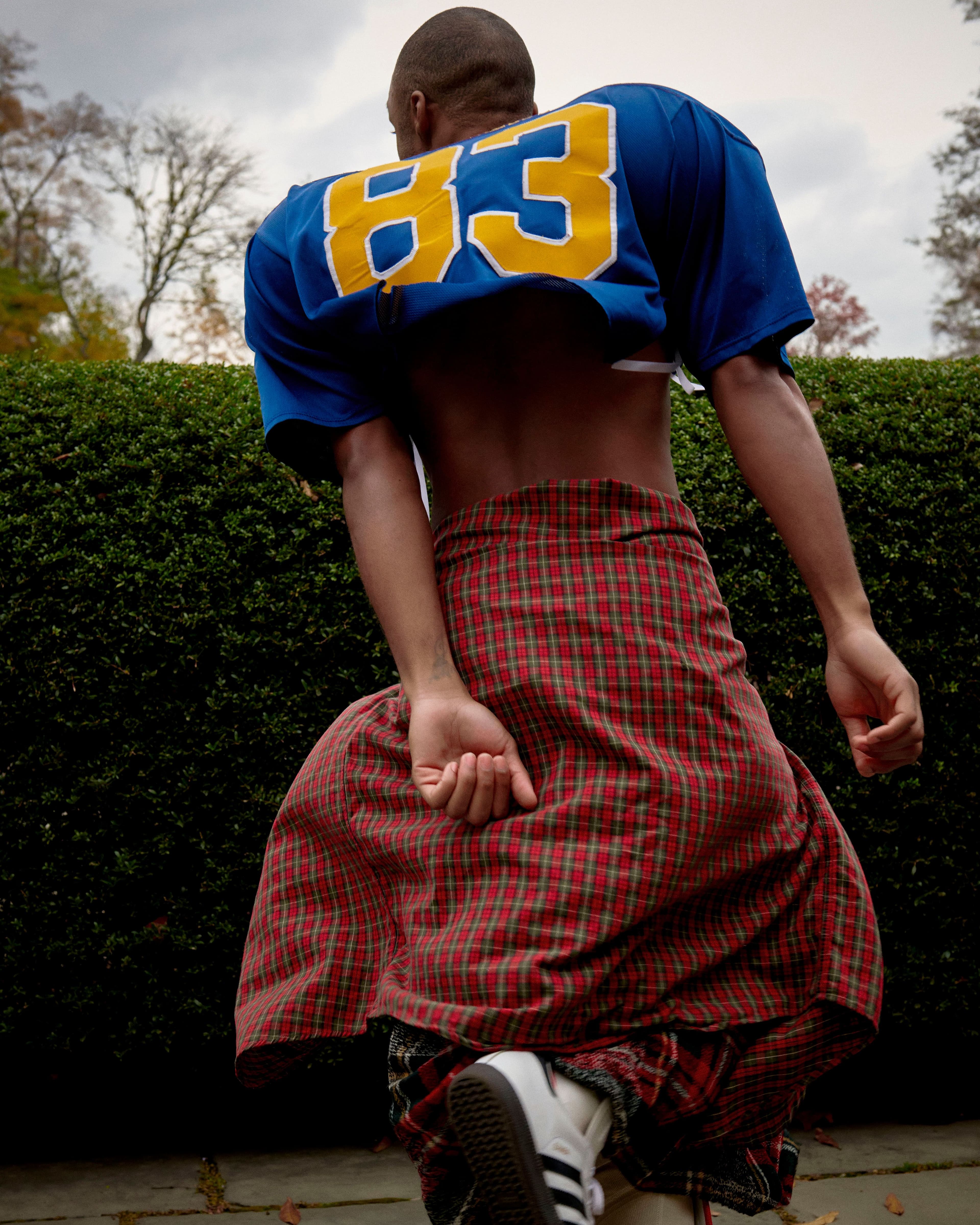
In many ways, Burnside now finds himself at a turning point in his career. For most of the past four years, he was an integral part of Ryan Murphy’s groundbreaking series Pose, which was set in New York City’s drag ball scene and featured a cast of mostly LGBTQ+ actors of color, including Mj Rodriguez, who made Emmy history last year as the first trans performer ever to be nominated in a lead acting category. Over the course of three seasons ending last summer, Burnside’s Ricky evolved from a side role as a boyfriend into the father of the House of Evangelista, surviving an HIV diagnosis along the way. The show was celebrated as a revelation for its centering of queer Black and Latinx characters, and Burnside says the experience helped him find his purpose as an artist. “My creative work has always been about uncovering self. I think that’s the work of the artist, to discover self,“ he explains. “What people then watch or listen to or experience or read then just becomes sort of a time capsule of where I was and what aspect of my humanity or someone else’s humanity or the human condition I was seeking to explore at that time. It’s like the chicken and the egg, does the self-exploration create the art or does the art induce self-exploration? I think it’s both.“
During his time in Pose, Burnside says that self-exploration focused on his sexuality, which he had struggled with while growing up and attending church, where he was taught that homosexuality was a sin. He now identifies as queer, which he appreciates for its connotations of freedom. “I think queerness denotes fluidity,“ he adds. “It denotes an expansiveness, an openness. It denotes being outside of the norm, it denotes being other. I embrace that otherness and I think it’s a way of viewing the world. It’s a way of embracing openness, which is incredibly freeing. It’s incredibly liberating.“
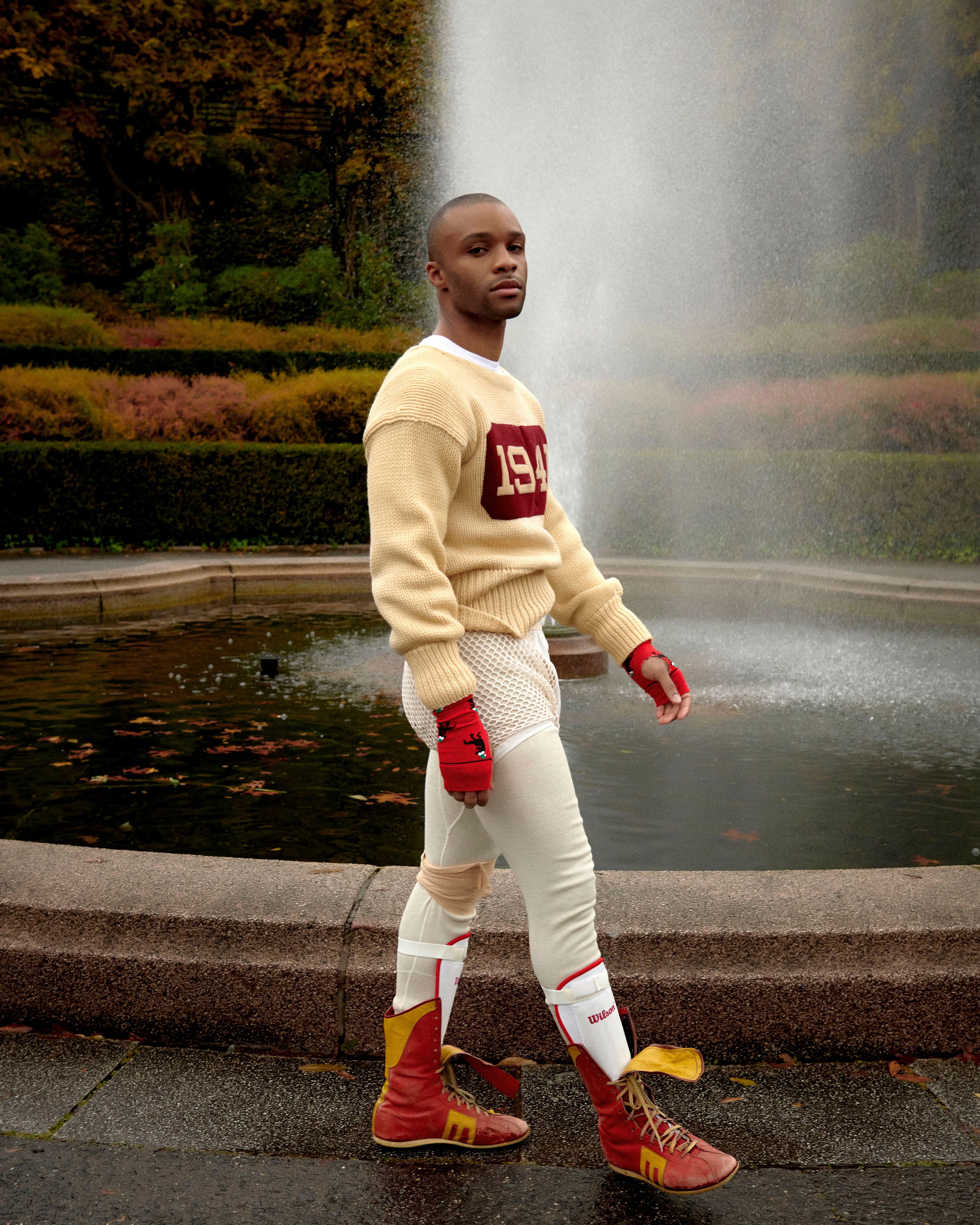
As production on the show’s final season was halted after the pandemic hit in early 2020, Burnside shifted his attention to other more personal projects, all of them interconnected as parts of the larger creative body of work he is building. He produced and hosted the Emmy-winning PBS series Prideland, which premiered that June and focused on LGBTQ+ narratives in the South. (He grew up in Florida and now lives in Atlanta.) With the encouragement of his Pose costar Billy Porter, he released his first single, “Silence,“ which he had written for himself a few years earlier during a “time of deep depression and feeling like I wasn’t enough.“ Having established himself with Pose, Burnside says he was ready to use his platform to create something greater—even if he didn’t know yet exactly what that would be. “There’s a lot of pressure for people to get it right, right out of the gate—perfection,“ he says. “I’m not interested in that. I’m interested in the process of uncovering my truths, of asking questions and seeking answers and engaging in dialogue with the audiences over the course of a career and over a large body of work that evolves over time.“
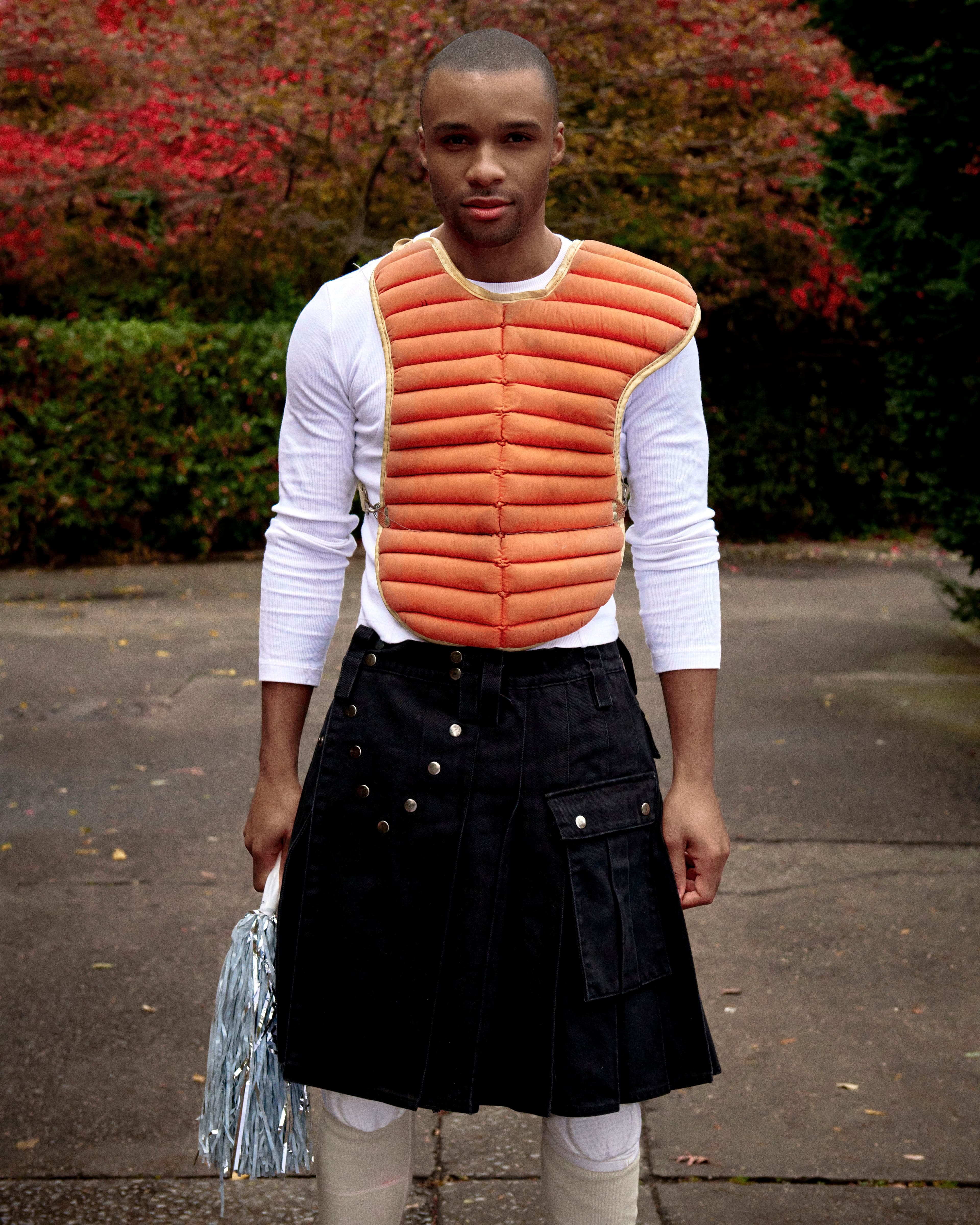
After he filmed his last scenes for Pose last year, Burnside felt confident that returning to Broadway (he previously performed in the 2014 Tupac jukebox musical Holler If Ya Hear Me while a student at the CAP21 conservatory) in Thoughts of a Colored Man was the ideal next step. “The reason that I chose to do it is because what Keenan wanted to do with this piece is very much in alignment with my mission statement and what I want to do with my work in the world,“ he explains. “It was less about whether or not this was the right career move or what is in the plan for the career right now and more about, this is right in the sense that it’s in alignment with what work I want to be doing in and for the world—which ultimately is the right career move.“
With its immersive exploration of the variety of the Black male experience, Thoughts was written as a rejection of the dual tropes of Black exceptionalism and Black trauma by filling in the gradients in between. Depression, Anger, Passion, Happiness, Wisdom, Love, and Lust—Scott’s message is that all of these characters interact within each of us in complex ways, contrary to the stereotypical images of Black men long presented by popular culture. Burnside’s Love is earnest and sincere, reciting poetry about a woman he meets on the street, and the actor says the play offered him the opportunity to question the precepts of masculinity. “Men have been taught a myriad of things about their relationship to themselves, to other men, their relationship to women, many unhealthy things that I think imprison men and that ultimately do them a disservice and block their ability to really connect on a basic human level,“ he says. “It really creates this shell of identity, of being this stoic figure who doesn’t have emotions, that is impenetrable, that has to serve a purpose of provision and protection and as a leader in a way that really denies men their full humanity.“
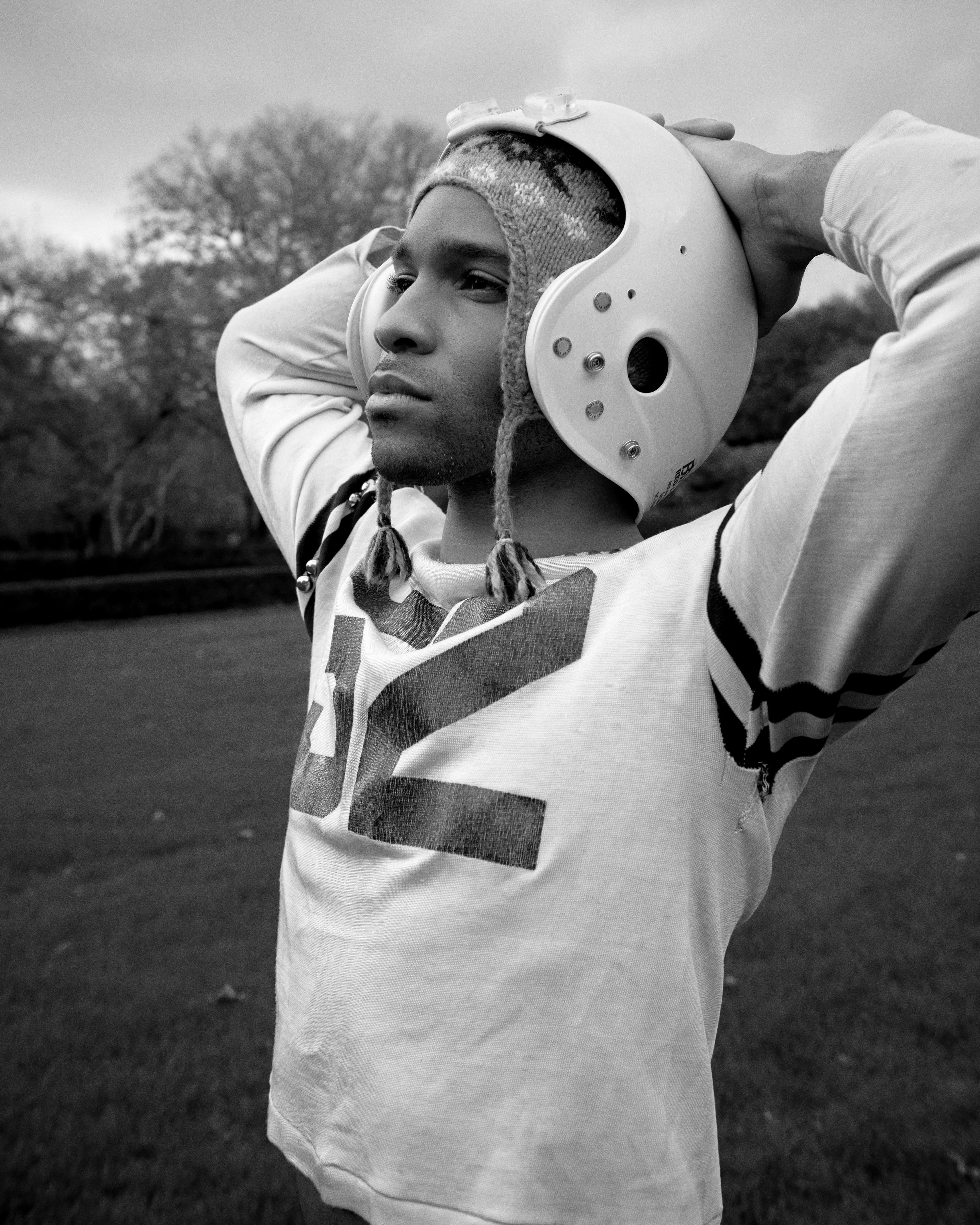
Burnside credits his queerness, his appreciation of otherness and openness, for allowing him to see beyond society’s expectations for him. “When we talk about what manhood is, those conversations often get lumped into conversations around sexuality. I’m okay with having the conversations side by side, but I do think they are two completely different conversations,“ he explains. “But I will say that my relationship to my sexual identity has allowed me to engage with the conversation around masculinity and male identity in a way that I think most heterosexually-identified men don’t get confronted with because maybe they don’t have to or it’s not encouraged socially. I think as a queer person, you have to interrogate ideas about masculinity, you have to interrogate ideas about male identity, because toxic masculinity has oppressed queer folks.“
As he looks ahead to the next stage of his career with plans to take on more creative agency by developing his own projects, Burnside says the through lines of his work will remain, from his insistence on self-discovery to his openness to change and his need to surprise and inform. “I think there are archetypes that we’ve seen, time after time, and I like playing with those archetypes and turning them on their head. I like to show people what they think is the archetype and then say, ’But he’s so much more than that,’“ he offers. “James Baldwin has this really great quote, ’I am what time, circumstance, history have made of me, certainly, but I am also much more than that. So are we all.’ It’s one of my favorite quotes because it’s like, yeah, I’m all of these things that time, my history, circumstances around me, all of it, have made me to be. Sure, I’m those things. But I’m also so much more, waiting to blossom, so much more than what meets the eye, so much more than what anyone can fathom, what anyone has given me permission to be.“
See the full Live in New York series here.
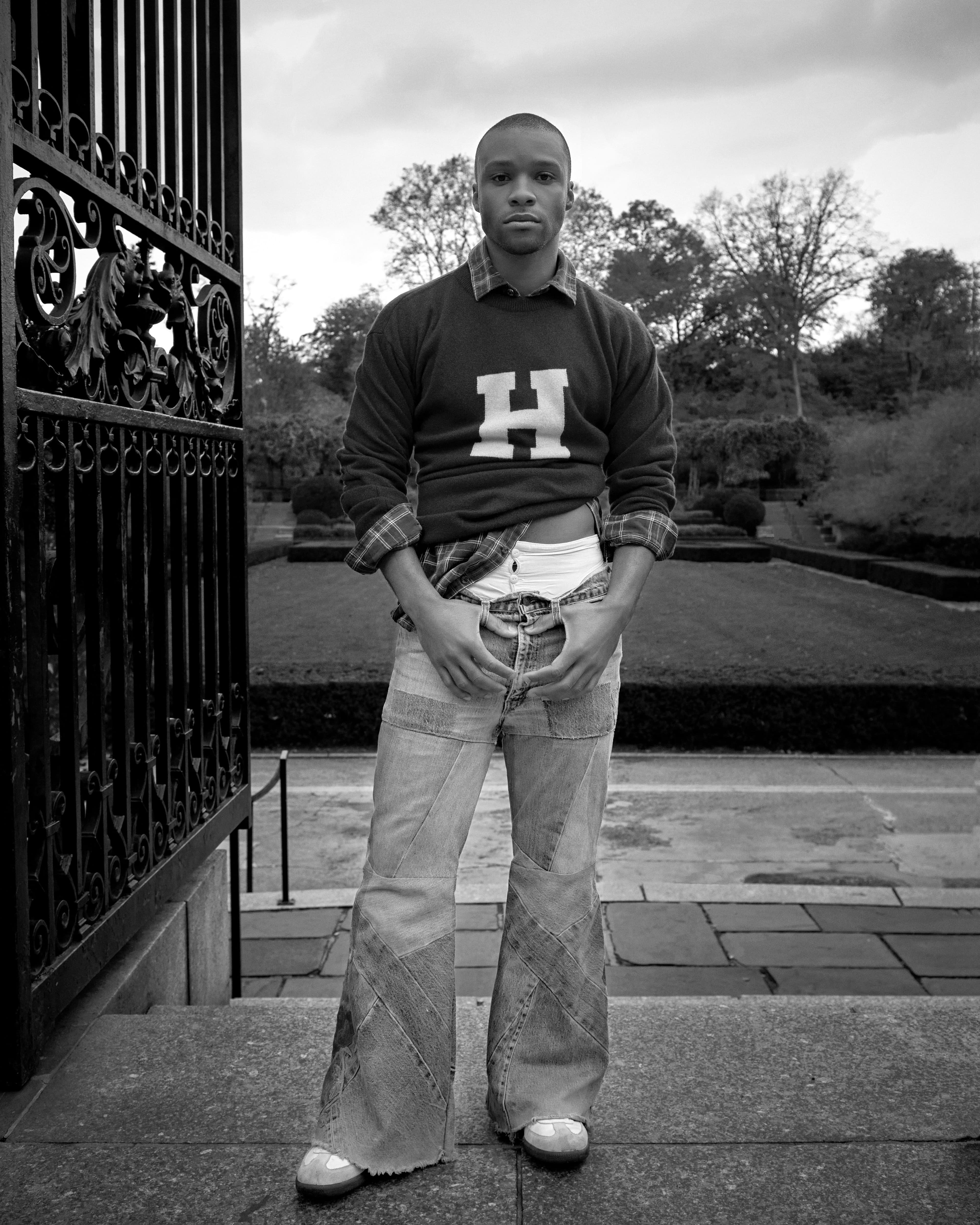
As a nonprofit arts and culture publication dedicated to educating, inspiring, and uplifting creatives, Cero Magazine depends on your donations to create stories like these. Please support our work here.






